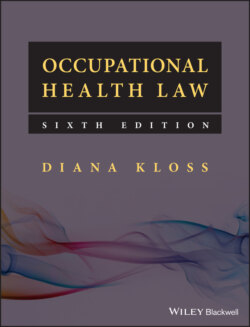Читать книгу Occupational Health Law - Diana Kloss - Страница 48
2.5 The duty of candour
ОглавлениеIn 2014, as a result of the findings of the inquiry chaired by Robert Francis QC into failures of care at Mid‐Staffordshire Hospital, legislation was passed to regulate health care and social care providers: Health and Social Care Act 2008 (Regulated Activities) Regulations 2014. These regulations do not apply to providers of occupational health services. Regulation 20 imposes a legal duty of candour on providers of care, that is a duty to inform patients or their relatives when something has gone wrong and to express sorrow and regret. The regulations are enforced by the Care Quality Commission which has power to bring a criminal prosecution for a breach. Although Francis recommended that health care professionals should also be subject to a legal duty to notify their employer of a failure of care, it was decided that the effect of imposing criminal sanctions would have the opposite effect, that is to make it less likely that an individual would report errors and failings to their manager. However, if mistakes are to be corrected it is important that management is made aware of them and for that reason the GMC and the Nursing and Midwifery Council (NMC) made a joint statement to all their members of their ethical obligations: Openness and honesty when things go wrong: the professional duty of candour (2015).
Every health care professional must be open and honest with patients when something that goes wrong with their treatment or care causes, or has the potential to cause, harm or distress. They must:
tell the patient (or where appropriate the patient’s advocate, carer or family) when something has gone wrong;
apologise to the patient (or where appropriate the patient’s advocate, carer or family);
offer an appropriate remedy or support to put matters right (if possible); and
explain fully to the patient (or where appropriate the patient’s advocate, carer or family) the short and long term effects of what has happened.
They must be open and honest with their colleagues, employers and relevant organisations and take part in reviews and investigations when requested. They must support and encourage each other to be open and honest and not stop someone from raising concerns.
